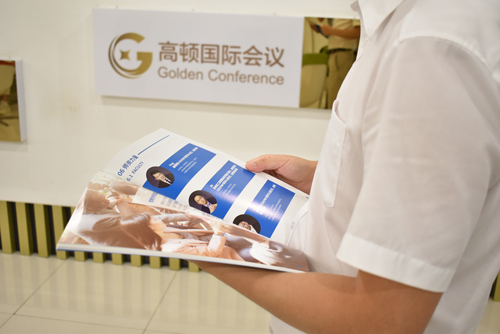
ACCA - How to prepare for Paper P5
- 2015年05月05日
- 11:04
- 来源:高顿财经
- 阅读:(104)
2024ACCA备考资料
- 财务英语入门
- 历年考题答案
- 2024考纲白皮书
- 2024考前冲刺资料
- 高顿内部名师讲义
- 高顿内部在线题库
摘要:【高顿ACCA小编】2015年 ACCA 考试即将开始,我们将第一时间公布考试相关内容,请各位考生密切关注高顿ACCA,预祝大家顺利通过ACCA考试。今天为大家带来的...
【高顿ACCA小编】2015年ACCA考试即将开始,我们将第一时间公布考试相关内容,请各位考生密切关注高顿ACCA,预祝大家顺利通过ACCA考试。今天为大家带来的是ACCA - How to prepare for Paper P5
Here are some suggestions how to prepare for Paper P5:
Paper P5 does assume knowledge from Paper F5.
If you did not take Paper F5 (because of the change of syllabus) then you do need to work through the F5 topics (use the Course Notes available on OpenTuition).
If you did take Paper F5, then make sure you revise the topics!
You do not need to work through variances (chapters 12 & 13 of the F5 Course Notes) because P5 does not ask calculations on them.
Transfer Pricing (chapter 17 of the F5 Course Notes) is important in general, but not too likely for the June 2010 exam, because it was asked in December’s exam.
Performance Measurement (chapters 14, 15, 16 and 18 of the Paper F5 Course Notes) is particularly important – something from this is always asked in Paper P5 exams.
Limiting Factors and Pricing (Chapters 6 and 7 of the Paper F5 Course Notes) are very unlikely to be asked in Paper P5.
Risk and Uncertainty (Chapter 9 of the Paper F5 Course Notes) is not something that is often asked in P5, but it has not been asked for a while and so is worth studying for this times exam.
1.There are not many extra ‘learning’ topics for P5. However do work through the P5 Course Notes on OpenTuition – particularly Economic Value Added (part of chapter 8 of the P5 course Notes) and Predicting and Preventing Corporate Failure (chapter 12 of the P5 Course Notes). Note, however, that you cannot be asked numbers questions on Corporate Failure – you can only be asked to discuss it.
2.You will have already have taken the Paper P3 exam (or be taking it this time). Do be aware that he often asks essay parts of questions relating to what you learned for P3, and so do not be frightened of using your P3 knowledge. Chapter 1 of the Paper P5 Course Notes is a short summary of the more important areas from P3.
3.An extremely common question in Paper P5 involves the preparation of profit statements (usually budget and actual) where the arithmetic involved is relatively easy but where there is a lot of information to deal with under time pressure. Do make sure you practice questions of this type (an example is question HLP from the June 2007 exam).
4.Do make sure you have read all the articles from Student Accountant by the examiner – Shane Johnson. He regularly asks questions that are effectively covered by his articles.
5.Do work through as many past exam questions as you can. The examiners style is very consistent, and very many questions are similar to questions that he has asked previously.
Assuming that you have a Revision Kit, then obviously the more questions you attempt the better, but the most important ones are those that are actually past real exam questions (both from Advanced Performance Management, and from the ‘old’ syllabus Performance Management exam – it was the same examiner).
Make sure you can cope with the numbers and that you are fast with the numbers, but also do spend time on the written parts of the questions. There are an awful lot of written marks in the examination and the best way of learning for those parts is to study the examiners answers.
The reason that Paper P5 gives problems for many students is that the examiner assumes knowledge of most of the topics that are examined at Paper F5, although these are not specifically mentioned in the syllabus.
Because of the change in syllabus few years ago, many students have not taken Paper F5 but took Paper 2.4 instead. In addition, many students escaped Paper 2.4 and Paper F5, because they had taken Paper 2.1, which exempted them from Paper F5!!!
Although there is a large written part to the exam, there is also a substantial amount of ‘numbers’.
The best way of preparing for the exam is:
– work through the relevant topics of the Paper F5 syllabus (see below)
– read the Student Accountant articles written by the examiner (Shane Johnson). (He was the examiner under the previous syllabus, and all his articles remain relevant.)
– practice as many questions as possible from BPP or Kaplan Revision Kits (especially those marked as being from previous Paper P5 or (old syllabus) Paper 3.3 examinations).
本文由高顿ACCA编辑整理,转载请注明出处
本文由高顿ACCA编辑整理,转载请注明出处
推荐:考生都在用的ACCA资料>>【领取2023ACCA完整资料】 (资料包含ACCA必考点总结,提升备考效率,加分必备)
版权声明:
1、凡本网站注明“来源高顿ACCA”或“来源高顿、ACCA学习帮”,的所有作品,均为本网站合法拥有版权的作品,未经本网站授权,任何媒体、网站、个人不得转载、链接、转帖或以其他方式使用。
2、经本网站合法授权的,应在授权范围内使用,且使用时必须注明“来源高顿ACCA”或“来源高顿、ACCA学习帮”,并不得对作品中出现的“高顿”字样进行删减、替换等。违反上述声明者,本网站将依法追究其法律责任。
3、本网站的部分资料转载自互联网,均尽力标明作者和出处。本网站转载的目的在于传递更多信息,并不意味着赞同其观点或证实其描述,本网站不对其真实性负责。
4、如您认为本网站刊载作品涉及版权等问题,请与本网站联系(邮箱fawu@gaodun.com,电话:021-31587497),本网站核实确认后会尽快予以处理。
分享到:
急速通关计划
ACCA全球私播课
周末面授班
其他课程
- 上一篇:ACCA学习,5大绝密“武器”你绝不能错过
- 网站首页 返回栏目
- 下一篇:ACCA选修课四选二哪个更好考
报考指南
******ACCA备考机经
价值1288元 考试必备资料 免费领取 高顿ACCA研究院******出品
价值1288元 考试必备资料 免费领取 高顿ACCA研究院******出品
领取ACCA资料包
大家都在看
-
阅读(9579)
-
阅读(9083)
-
阅读(9068)
-
阅读(8764)
-
阅读(8739)
日排行 • 周排行
- 1 acca课程体系?acca考试具体内容有哪些?
- 2 ACCA FM | NPV和IRR两大评估方式+对比
- 3 acca考试具体内容有哪些?
- 4 acca考出来对进四大有帮助吗?
- 5 ACCA让我不再迷茫,打开全新视野!
- 6 超详细ACCA报考流程
- 7 ACCA F2重要考点解析
- 8 FA之Provision如何拿满分丨ACCA Cloud
- 9 ACCA知识点:增值激励计划
- 10 ACCA考试科目这盘“大餐“怎么搭配最“营养”
- 1 2023年ACCA考试科目通过率排名:哪些科目最容易通过?
- 2 2024年参加12月acca考试带什么?准考证可以打印了吗?
- 3 2024年accaf1裸考能过吗?历年通过率多少?
- 4 定了!2023年acca要考几年能考下来?要考几科才可以拿出去面试?
- 5 2024年acca要考几门?按什么顺序考?
- 6 2023年申请acca免考科目的条件?最多可以免考几门科目?
- 7 2023年哪些大学财会专业比较好?没错了,就是这几所!
- 8 acca学姐来解答2023年acca是什么考试?各科目全称是什么?
- 9 速看!2023年会计学acca是什么意思?一文教你看懂!
- 10 定了!2023年acca考位满了还有可能报上吗?
-
ACCA考试热门词
-
ACCA内部备考资料高顿ACCA为您免费提供全新ACCA资料,包括历年考题、考官报考、考官文章、考纲解析、学霸笔记、内部讲义等,同时还助您了解新学员报名注册指南、机考报考考试引导、OBU&UOL申请攻略等,点击免费获取。
-
- ACCA常见问题
- ACCA推荐阅读
- ACCA考试资讯
- ACCA原创文章
- ACCA学霸分享
- ACCA常见问答







